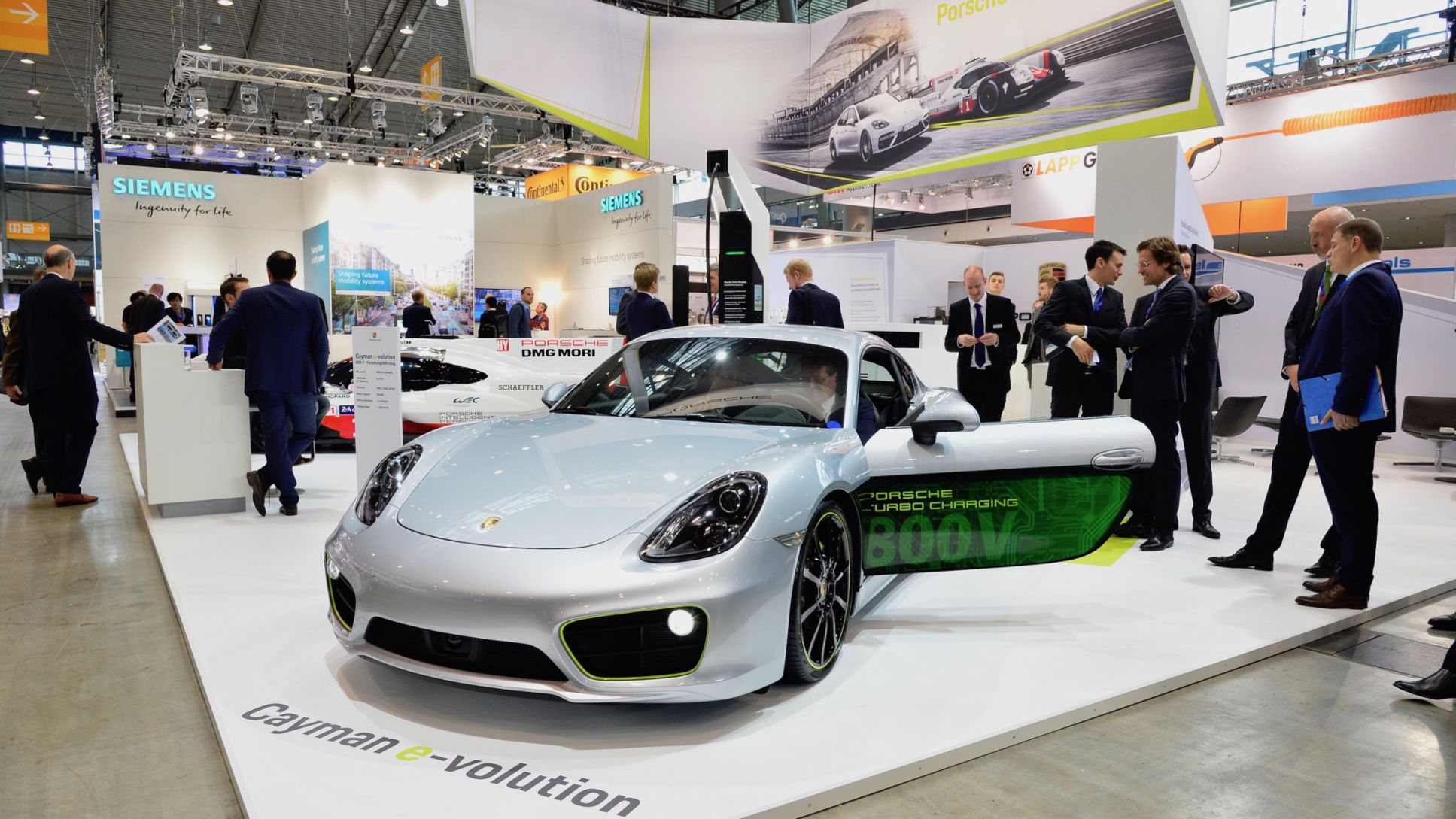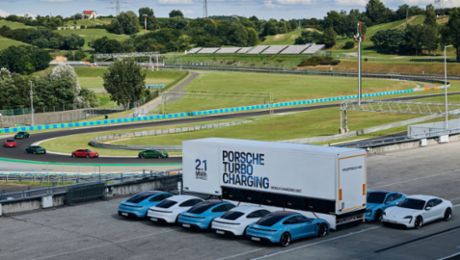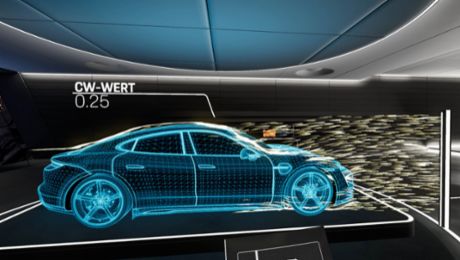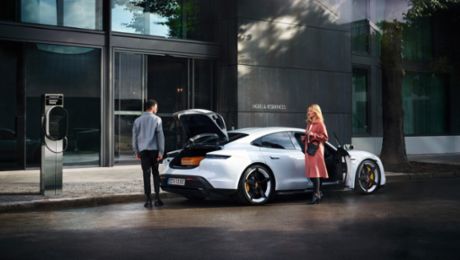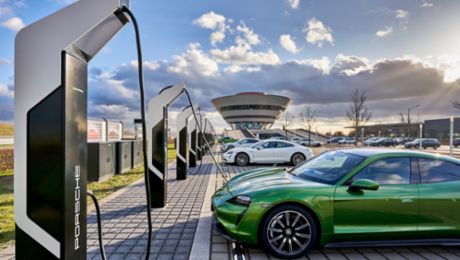With the Cayman e-volution the company presents a research vehicle with a charging voltage of 800 volts that accelerates from zero to 100 km/h in 3.3 seconds and offers a range of 200 kilometres. The vehicle will not go into series production, but does give an early indication of just how sporty Porsche believes e-mobility can be. It is also a hint of what is to come in 2019, when Porsche will bring its first purely electric sports car, the Mission E, into production. The Mission E will be capable of covering a range of over 500 kilometres, and will be able to charge its batteries to 80 per cent within just 15 minutes.
With Porsche Turbo Charging, the sports car manufacturer is also showcasing its first ever accumulator-based fast charging system, which is capable of achieving a charging capacity of up to 320 kW per vehicle or twice 160 kW. The system is a collaborative development between Porsche Engineering and ADS-TEC, and is particularly suitable for use in areas where the distribution system is subject to power limitations. The system is to be used as a supplement to high-power fast charging network with medium voltage connection. One of these networks will be built on major European traffic routes by 2020 in a joint venture between Porsche, Audi, BMW, Daimler and Ford.
Porsche is sponsoring the Electric Vehicle Symposium
The Electric Vehicle Symposium from October 9 to 11 2017 is the world’s largest industry gathering on the topic of e-mobility. Porsche is sponsoring the event and is also participating as an exhibitor. In addition, the sports car manufacturer is providing numerous experts, who will be able to demonstrate their comprehensive expertise around all things e-mobility. Porsche was the first manufacturer to bring three plug-in hybrid vehicles to market in the premium segment. For several years now, the company has also been gaining valuable experience in the use of hybrid engines at the highest possible level of performance in the LMP1 class of the FIA World Endurance Championship. This experience has enabled Porsche to exhibit a mock-up of an LMP1 racing car at the Porsche EVS stand – the same car that has seen Porsche win the 24 Hours of Le Mans and the FIA World Endurance Championship several times over.
